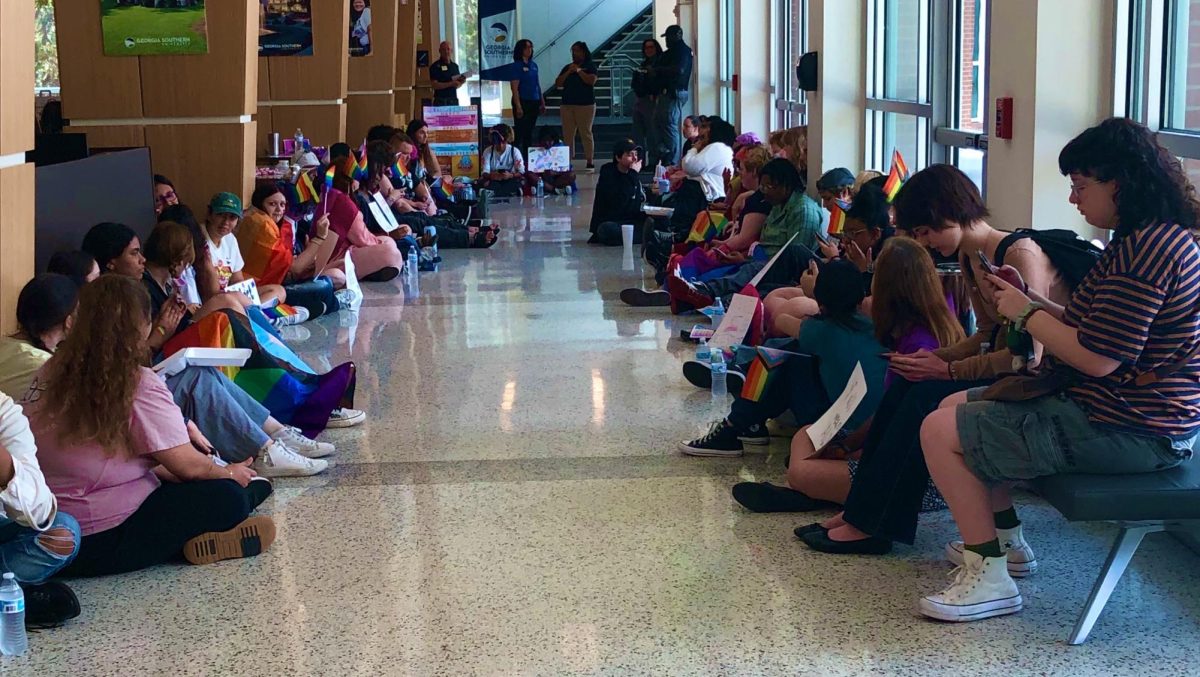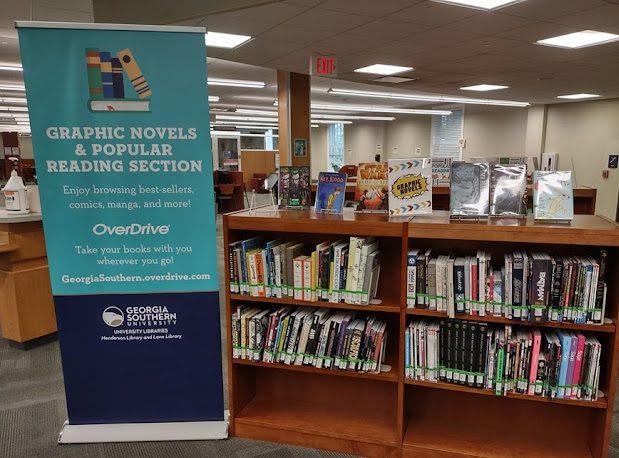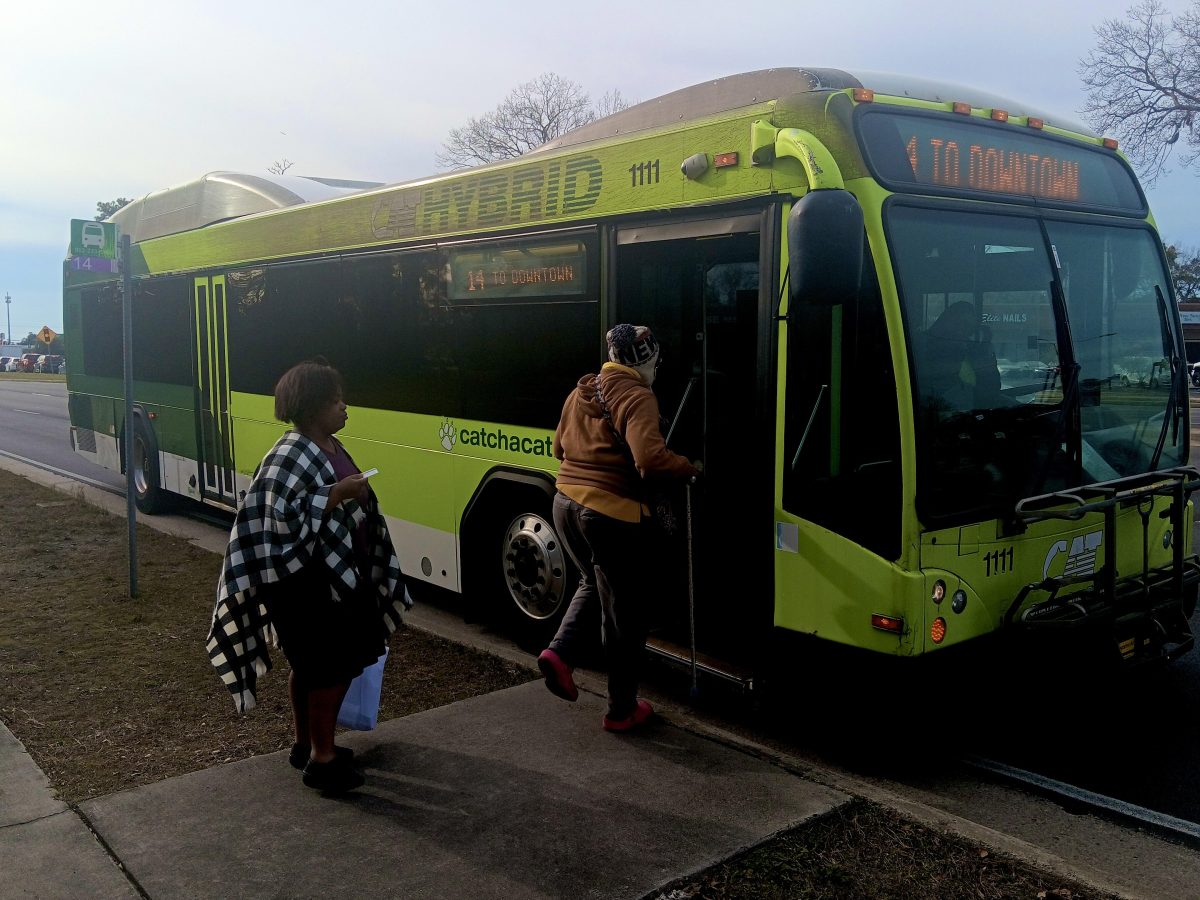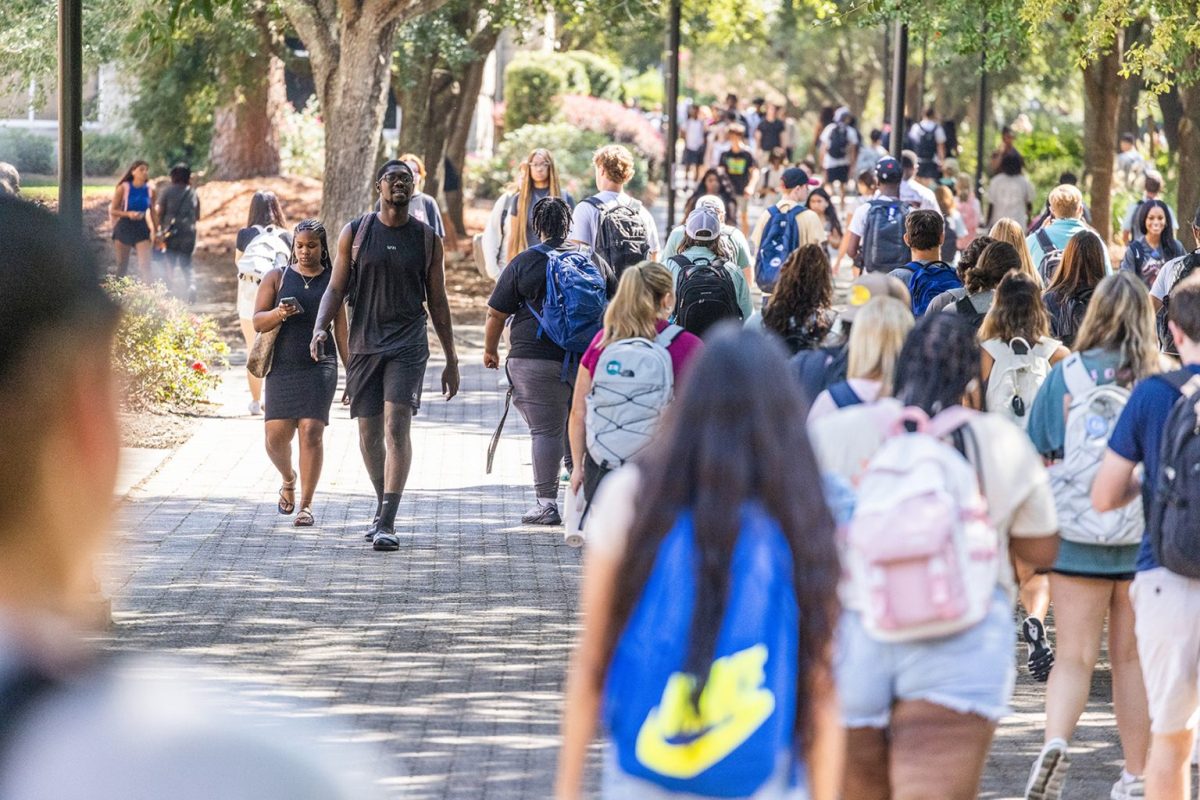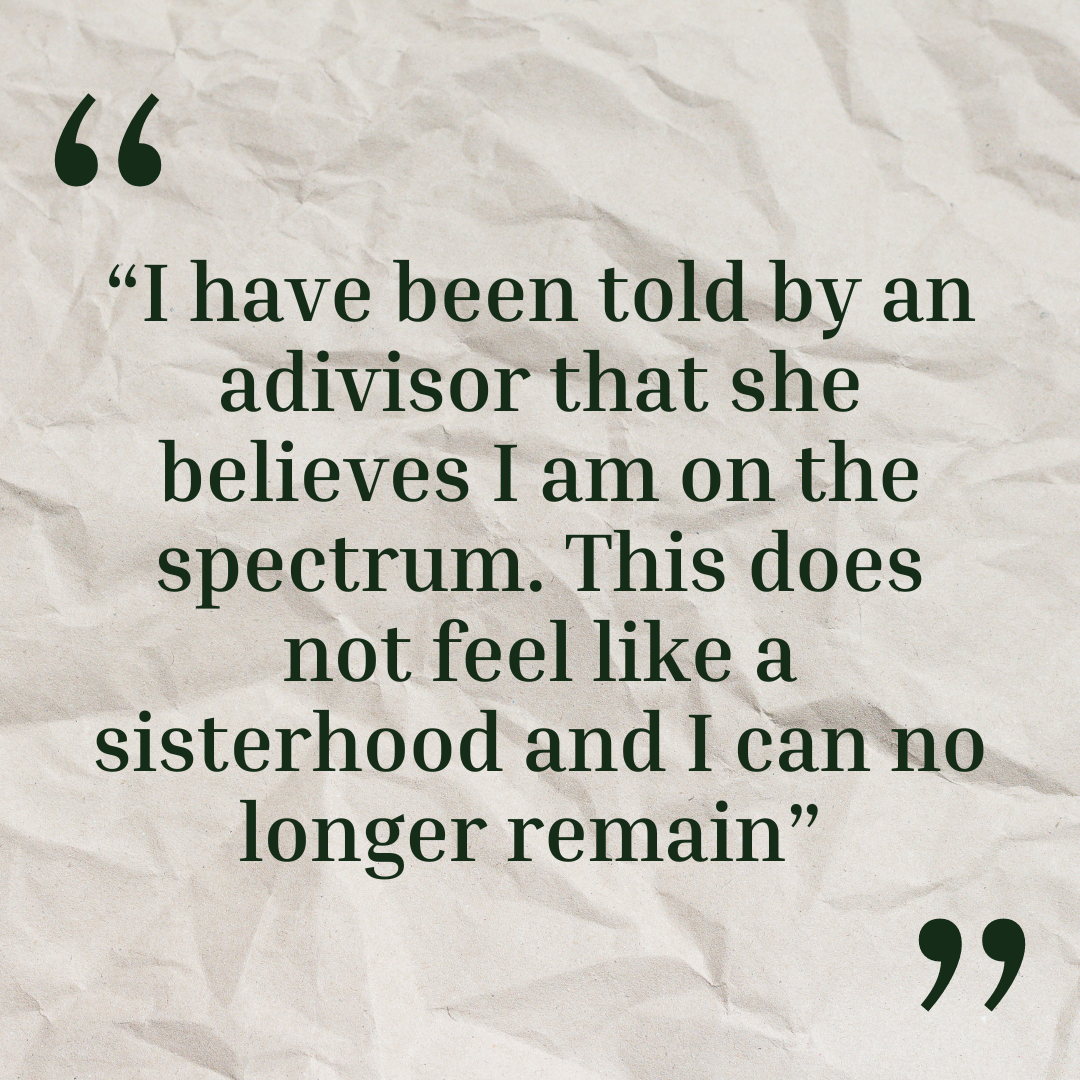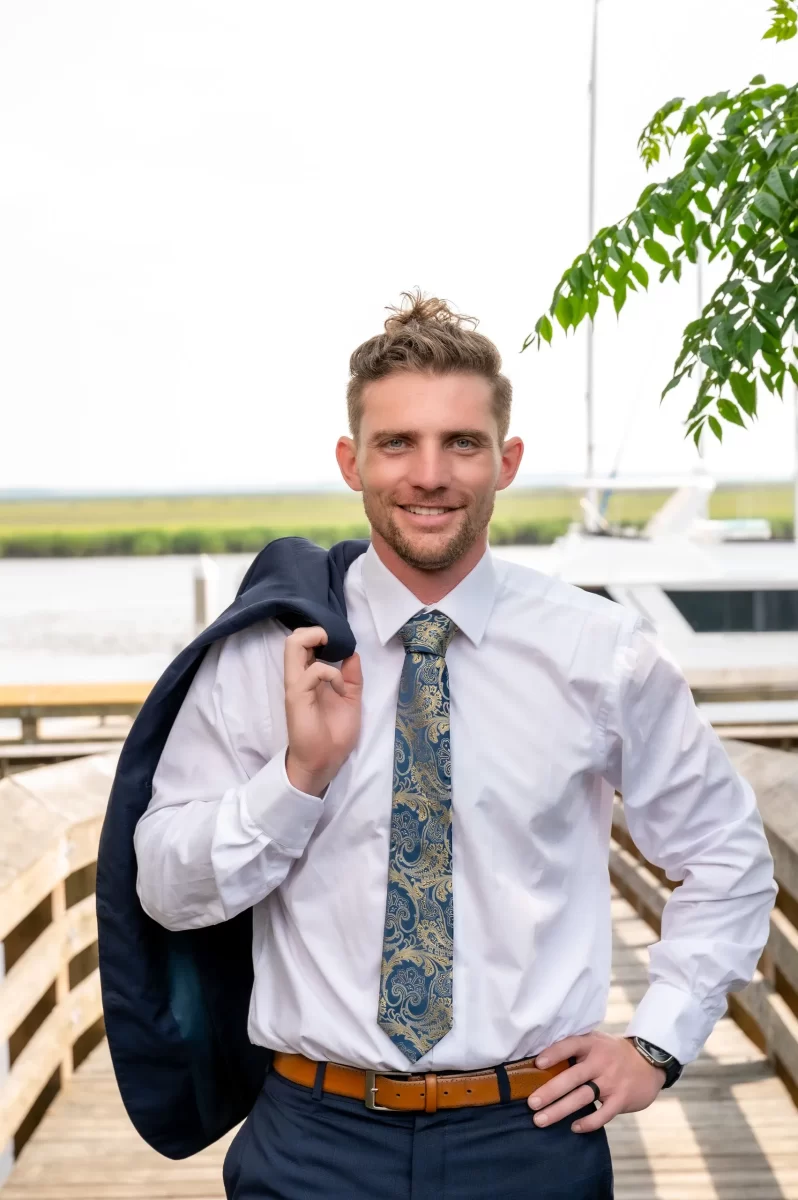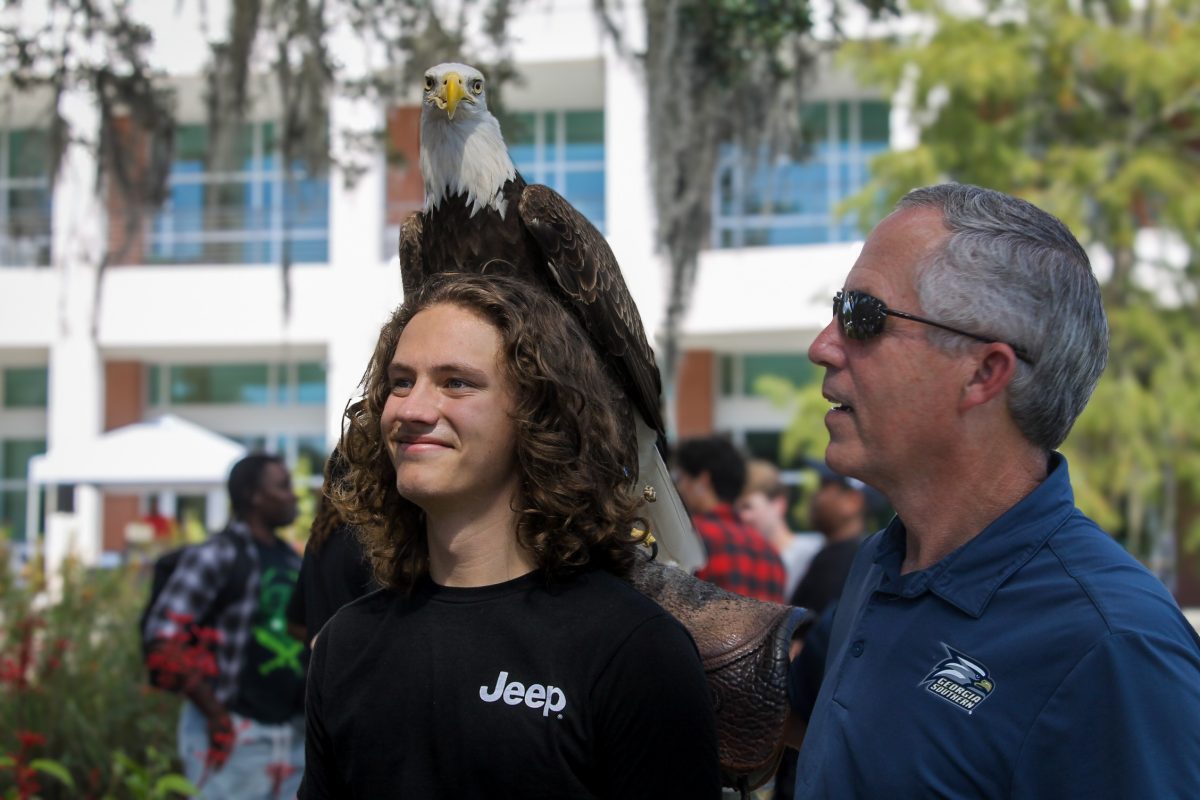Visible and Invisible Disabilities: Erasing the Stigma. Understanding Culture.
Rebecca Munday, Staff Writer
Not all disabilities are visible. “You might look at someone and think ‘Oh, I know who they are,’ but you probably don’t…you most certainly don’t,” explained Dr. Nathan Palmer to the audience in attendance for a workshop called “Visible and Invisible Disabilities: Erasing the Stigma. Understanding the Culture.”
Palmer is an event speaker and professor of sociology and anthropology on the Armstrong campus.
The Office of Inclusive Excellence held the workshop at 12 p.m. on Sept. 11 in Solms Hall Room 110.
A flyer touting the mission of the workshop stated that it was “designed to address stereotypical responses to persons with disabilities and engage the audience in a lively discussion about visible and invisible disabilities.”
Palmer emphasized using inclusive language and eschewing the term “disabilities” in favor of “differences” because, “I’m not disabled. I’m not unable to do something,” he affirmed.
During the event, there was a lecture with PowerPoint slides that surveyed challenges and characteristics of a variety of disabilities from Bipolar Disorder to Deafness (disorders that those affected capitalize the first letter as a show empowerment.)
After the lecture, professors Palmer and Dr. Maxine Bryant shared their stories as people with disabilities.
There is no specific clinical term for what Palmer’s learning differences are. He shared his lived experience of being “different” from the rest of his classmates from the time he was a child, struggling in school, and learning differently than the rest of his classmates.
When talking about the usual path that most people take in life and school, Palmer remarked, “If I had stayed on that path…I wouldn’t be here today.”
After Palmer spoke, Bryant contributed to the workshop with examples of her daily reality living as someone who experienced deafness later in life.
People often tell her she doesn’t talk like she is hard of hearing. She illustrated the struggles of a person and a professor who is hard of hearing.
Bryant related that hearing aids are not covered under most health insurance plans. Then, she shared a moment involving how her hearing aid malfunctioned while she was driving.
Bryant also mentioned that even the people she spends the most time with often forget that they need to be looking at her for her to understand them properly.
“Hearing aids don’t make sound clearer for me; they make sound louder,” she articulated, meaning that she still needs people speaking with her to stand within her sight line and enunciate.
After the talk, Kelly Woodruff, Director of Accessibility Services and Dr. Dana Taylor, a Psychotherapist and Interpreter for the Deaf served as panelists for an open discussion with students.
The next event hosted by the Office of Inclusive Excellence will focus on LGBTQ+ issues.
Palmer also has an upcoming presentation titled “Succeeding through the Struggle.”
Both events are slated to be held in early October.
For more information regarding the Student Accessibility Resource Center, the office is located on the second floor of the Memorial College Center and officials can be reached via email at sarcsav@georgiasouthern.edu or via phone at (912) 344-2572.










